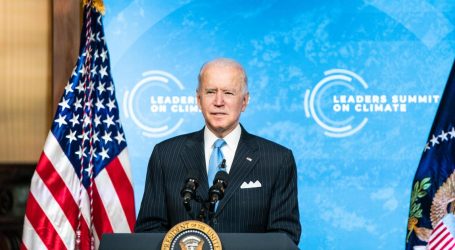These Billionaires Want to Disrupt Death—and Keep Their Fortunes Forever
Tara Jacoby
Fight disinformation: Sign up for the free Mother Jones Daily newsletter and follow the news that matters.When the US targeted Russia’s oligarchs after the invasion of Ukraine, the trail of assets kept leading to our own backyard. Not only had our nation become a haven for shady foreign money, but we were also incubating a familiar class of yacht-owning, industry-dominating, resource-extracting billionaires. In the January + February 2024 issue of our magazine, we investigate the rise of American Oligarchy—and what it means for the rest of us. You can read all the pieces here.
They say the only things certain in life are death and taxes, but America’s billionaires, having taken care of the latter, are now trying to disrupt the former—and make sure nobody can pry their fortunes from their cold dead hands.
Four decades of nerds hitting the jackpot has brought about a gruesome parade of zillionaire techies intent on cheating the grim reaper. OpenAI’s Sam Altman, Jeff Bezos, Larry Ellison, and Peter Thiel are among the would-be immortals sinking hundreds of millions of dollars into startups and research based on the notion, as fellow tech bro Peter Diamandis put it, that “aging is a disease” that “can be slowed, stopped, and perhaps even reversed.” Another tech founder, Bryan Johnson, famously transfused himself with the blood of fit young people, including his teenage son, for six months last year—an act of depravity he hoped would help cure the disease. “Discontinuing therapy…no benefits detected,” he tweeted in July.
Yes, it has got to be frustrating when you have more money than God, and yet, as William J. Kole, author of The Big 100: The New World of Super-Aging, told me, “There’s no way to purchase immortality.”
Hence the interest in freezing one’s corpse for future revival. This morbid notion first gained traction in the mid-1960s, when “father of cryonics” Robert Ettinger published his book The Prospect of Immortality. Today, Silicon Valley is all in. “We have some of the wealthiest, most prominent technology people on Earth that have ever lived,” James Arrowood, co-CEO of Scottsdale, Arizona’s Alcor Life Extension Foundation, one of two major US cryogenics facilities, boasted in 2023.
Suppose Thiel—who has enlisted with Alcor, were to perish out of state with his body intact. As long as he has at least $220,000 in life insurance and has kept up with his monthly dues, a field team from contractor Suspended Animation Inc. will swoop in and replace his blood with anticoagulants and chemicals to protect vital organs.
He will then be packed on ice for transit to Scottsdale, where the “patient” (as Alcor calls them) will be infused with (basically) antifreeze and placed under liquid nitrogen in a Bigfoot Dewar vat that can hold up to four “wholebody patients” and five “neuropatients” (head only) indefinitely. But on the off chance revival ever becomes feasible, there remains a money problem, one expressed by yet another old adage: “You can’t take it with you.”
Really?
About a decade ago, Scottsdale attorney Mark House was working on the contested estate of a man who’d had himself frozen. In the process, he met with Alcor staff and grew smitten with the legal issues around reviving the dead. Rich “grantors” routinely use trusts to channel fortunes to their heirs. Maybe a thawed grantor could pass as his own heir! “You don’t wanna come back poor,” House explains.
So he dug in, and over time “I kind of developed a body of law.” House has since created some 100 “cryonic suspension trusts.” The tricky part, in theory, is that a grantor is legally required to name an “ascertainable beneficiary” before the trust must vest (dole out its assets). Nearly all US states once had a “rule against perpetuities” that capped trusts at 90 years to prevent a grantor’s “dead hand” from controlling family affairs indefinitely.
But the wealth protection industry has lobbied to weaken or repeal these limits. In 2008, Arizona amended its law to enable trusts that last up to 500 years, which even a Republican state attorney general deemed “likely unconstitutional.” Hugh Magill, a former chief fiduciary officer at Chicago’s Northern Trust Company, told me he’s encountered a handful of cryonics trusts, one of which sought protections for the grantor’s “bionic analog version,” a bionic “person” into which a digital copy of the grantor’s mind had been uploaded—real Black Mirror stuff. But “even the very best attorneys have a significant challenge,” he said, with trusts that “attempt to navigate this channel” between the living and the dead.
Also: Cryonics trusts have yet to be tested in court.
For the typical cryonaut, House recommends an “accumulation trust” funded by life insurance—the trust assets grow as the grantor chills. Billionaires like Thiel might favor a dynasty trust, which America’s aristocracy already uses to sustain its families forever, where the law allows. The cryo version need only stipulate that the “corpus” (assets) might one day revert to the corpse (revived). For simplicity, House figures the thawed grantor should be treated as an entirely new person, though that might trigger a hefty generation-skipping inheritance tax. (He offered to reach out to the IRS for guidance, but Alcor demurred.)
The taxman may never actually need to rule on the legality of cryo-trusts. Even Thiel, after all, is “not convinced” cryonics is going to work. But all these billionaires chasing immortality, Magill says, “should prompt us to ask some deeper questions.” Not least of which: Will Earth even be habitable in 2324?
House plans to find out. Toward the end of our conversation, he reveals that he, too, has become an Alcor member. He’ll be a neuropatient: “My kids were like, ‘Sure, we’ll come visit your head.’”





